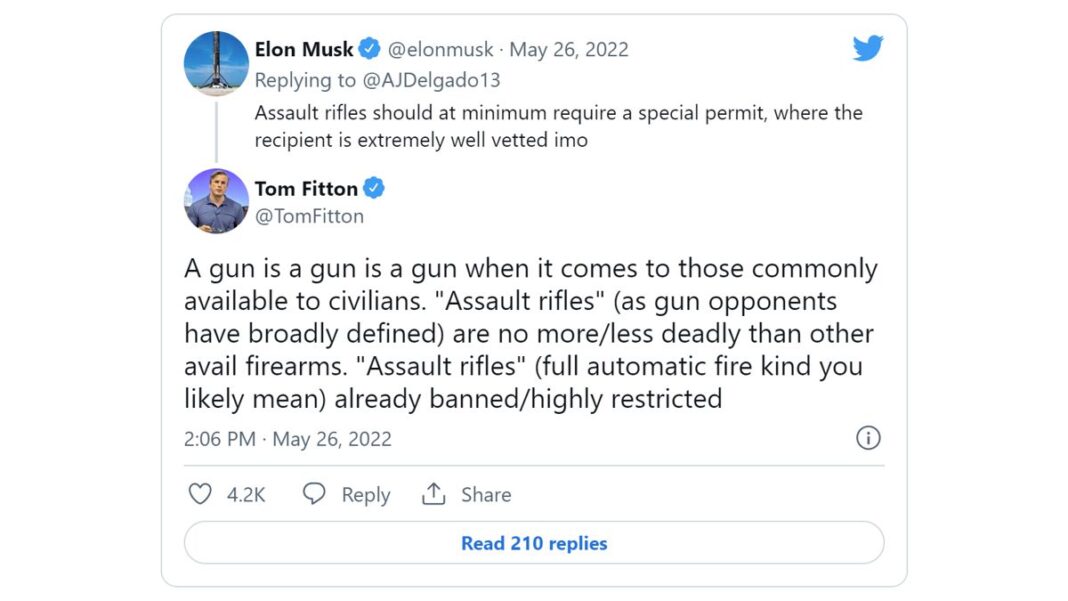Tesla and SpaceX CEO Elon Musk joined the right-to-bear arms debate this week by sharing his thoughts on the second amendment after the tragic shooting at Robb Elementary School in Texas on May 24.
“I strongly believe that the right to bear arms is an important safeguard against potential tyranny of government. Historically, maintaining their power over the people is why those in power did not allow public ownership of guns,” Musk said in an email to CNBC on May 25.
In the same email, Musk elaborated that he supports applying “tight background checks” on all gun purchases, and limits on gun sales to people with special circumstances such as “high-risk location, like gang warfare,” reported CNBC.
In a later interaction with Twitter users, the billionaire further revealed his thoughts on the right to bear arms.
Tom Fitton, president of Judicial Watch, a nonprofit government watchdog, replied to Musk’s posts with what he thinks is the point of issue between gun control activists and those advocating for the right to bear.
“A gun is a gun is a gun when it comes to those commonly available to civilians. “Assault rifles” (as gun opponents have broadly defined) are no more/less deadly than other avail firearms. “Assault rifles” (full automatic fire kind you likely mean) already banned/highly restricted,” Fitton said.
“In truth, anti-gun activists seek severe restrictions on, and oppose in concept, any individual civilian RIGHT to own ANY firearm, even though it is an inalienable right specifically recognized in the U.S. Constitution under the Second Amendment. This is the debate,” Fitton added.
A gun is a gun is a gun when it comes to those commonly available to civilians. “Assault rifles” (as gun opponents have broadly defined) are no more/less deadly than other avail firearms. “Assault rifles” (full automatic fire kind you likely mean) already banned/highly restricted
— Tom Fitton (@TomFitton) May 26, 2022
In response to Fitton’s post, Musk pitched a few ideas for striking a balance between protecting people’s constitutional freedoms and public safety.
By Gary Bai







